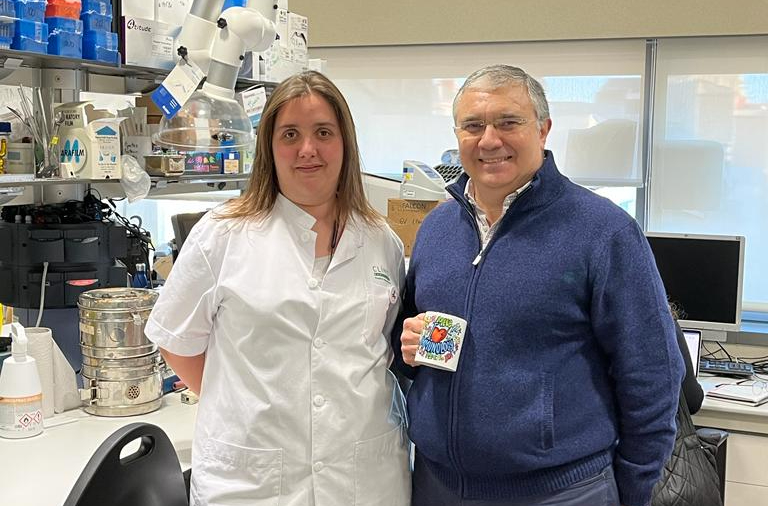
The University of Barcelona participates in the development of a new cellular immunotherapy for the treatment of fungal infections
The University of Barcelona (UB) has participated in the development of a new cellular immunotherapy for the treatment of invasive fungal infections, which account for high morbidity in immunocompromised patients, such as cancer patients, bone marrow transplant recipients, and patients admitted to the ICU.
The occurrence of fungal infections that are multidrug-resistant to available antifungal antibiotics results in a mortality that can exceed 70%. In addition, the antifungal drugs in use have a number of drawbacks, such as high liver and kidney toxicity, interaction with other drugs the patient needs, and antibiotic resistance, which makes it necessary to look for an alternative.
In response to this scenario, a multidisciplinary team of researchers from Hospital Clínic de Barcelona and the August Pi i Sunyer Biomedical Research Institute (IDIBAPS) has launched a clinical trial to evaluate the safety and efficacy of this new cell-adoptive immunotherapy, owned by Hospital Clínic de Barcelona, IDIBAPS and UB, in patients with fungal infections resistant to conventional treatment.
The new cell-mediated immunotherapy consists in boosting the natural antifungal activity of immune system cells specialised in anti-infective and anti-tumour defence, known as natural killer (NK) lymphocytes.
NK lymphocytes from healthy donors will be isolated and expanded and then modified to express a chimeric antigen receptor (CAR) that allows them to detect the presence of a component unique to the membranes of all fungi, thus enhancing their ability to kill them.
“Under normal conditions, the human immune system works and protects us from serious infections. We have therefore used a receptor that we have in our system and that is able to detect the presence of fungi, and we have given it a new form that activates these cells of the immune system and allows them to detect fungi and destroy them,” explains Dr. Francisco Lozano, a professor in the Department of Biomedicine at the Faculty of Medicine of the UB and a member of the research project
Improving patient survival rates
To carry out this therapy, large quantities of these cells must be produced and transfused to patients with infections that do not respond to antifungal antibiotic treatment. “NK cells can come from any donor and we can generate them, have them manufactured, and give them to patients as soon as they need them,” says Dr Lozano.
This is crucial for improving patient survival rates. “In a patient with cancer, you may have ten, fifteen or twenty days to produce the patient’s own cells and then use them; but in a patient with a serious infection, you don’t have that kind of time, because infections spread very quickly. Having a therapy ready to apply will be a major breakthrough.”
According to Dr Lozano, providing NK lymphocytes will not pose “any inconvenience” to patients. Using the example of treatments to combat leukaemia, he adds, “These cells are used against leukaemia and have advantages in the fight against tumours. The only thing we need to do in our research is to produce these cells in large enough quantities to transfuse millions of cells to patients.”
Dr. María Velasco de Andrés, an IDIBAPS researcher, stresses that the development of this therapy will be “essential” to provide an alternative for immunosuppressed patients or those admitted to the ICU. ” These patients are the neglected ones in the therapies that are currently being developed. The important thing is to give them a fighting chance.
Trial about to be approved by the Spanish Drug Agency
The trial is currently undergoing approval of the protocol for the production of clinical-grade CAR-NK cells (GMP, good manufacturing practice) by the Spanish Drug and Health Products Agency (AEMPS). Patient recruitment will begin at the end of this year and the first results of the study are expected by the end of 2025.
This research is funded by the Carlos III Health Institute and the Ministry of Science and Innovation, with the collaboration of members of the Infectious Diseases Service (Carolina García-Vidal, Pedro Puerta, Álex Soriano), the Immunology Service (Francisco Lozano, Manel Juan, Mariona Pascal, Marta Español, Sergio Navarro), the Haematology Service (Álvaro Urbano-Ispizúa, María Suárez-Lledó), the Microbiology Service (Francesc Marco), and the Intensive Care Unit (Pedro Castro) of the Hospital Clínic de Barcelona.

